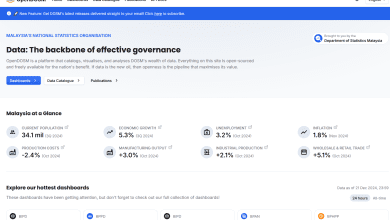Terror Threat Comes Closer to Home
Perak has always had a history of terror attacks.
In September 1945, the British Military Administration (BMA) urged the Malayan People’s Anti-Japanese Army (MPAJA) to surrender their weapons, but by 1948, the BMA faced an increasing threat of strikes by the labour unions, exacerbated by the infiltration of communist agents. The Malayan Emergency began when three European planters at Sungai Siput were murdered, in June 1948, and the murders were considered an an act of terror.
In July 2000, an Islamic militant group, the Al-Ma’unah, stole weapons from a Malaysian Army camp, in an attempt to overthrow the government of Malaysia. There was a five-day stand-off against the army and the police forces, who had tracked the militants to a village in Sauk, Perak. The siege ended when the army’s Grup Gerak Khas (22nd GGK) and police VAT69 Pasukan Gerakan Khas, stormed the militant’s camp, in what was known as Operation Dawn.
A security expert, HM Khen, said, “The problem with the public perception of terrorism stems from the fact that there is no universal agreement on the term ‘terrorism’.
“It falls back to political interests and bias, which basically depends on whose side you are on.
“Western bias often leads to Islamophobic elements rather than the real issue, but it is not a new issue and terrorism certainly did not begin after September 11.”
Over the past few years, the authorities have arrested hundreds of people for suspected links to militant groups, for planning terror raids, and for spreading their ideology.
When the militant group, Islamic State, in Iraq and Syria (ISIS), launched several attacks in Jakarta, in January 2016, the security services of both Indonesia and its neighbouring countries, were placed on high alert, to foil further attacks by ISIS.
In February 2017, a Malaysian factory supervisor, Mohamad Awang, 42, was arrested at KLIA, and prevented from flying to Syria, via Tehran. He was stopped before he could commit any acts of terrorism.
Eleven months later, two men with suspected ISIS links, were arrested before they could wreak their violence on the public. One, a 23-year-old Indonesian, had planned to attack and kill Buddhist monks in Kuala Lumpur, he later claimed that this was in retaliation for the violence suffered by Rohingya Muslims, in Myanmar. He had also planned to attack Travers police station and the police headquarters in Bukit Aman.
The other man was a 25-year-old Malaysian teacher, from a private religious school, who was arrested before he could attack entertainment outlets, rob, kidnap or kill non-Muslims.
This teacher had previously been jailed under Malaysia’s anti-terror law. He had managed to maintain contact with former members of known terror groups, used his Facebook to promote ISIS ideology, and recruit new members.
If he had been jailed before, this means that the punishment did not serve as a deterrent, because he was able to resume where he left off, after his first arrest.
As he was a religious teacher, have the authorities found out how much of his ideology was passed on to his students. Have any of them been radicalised? What about their parents? Do they have no issues with what he was teaching their children? Have they noticed any change in their children’s behaviour?
Does it also mean, that the previous government’s de-radicalisation programme is not effective, or was he just a one-off failure of the rehabilitation programme for terrorists?
If he also managed to maintain contact, then it begs the question, how far into his communication was he arrested? What about the people he recruited or contacted? Have they also been arrested? Why was he allowed to communicate with former members of known terror groups, unless the authorities allowed this so they could monitor his conversations and know the extent of his circle of contacts?
Perhaps, we need to question the effectiveness of the government’s de-radicalisation program. What measures do they use to gauge its effectiveness? The teacher appeared to be unphased, or perhaps he pretended that he had been deradicalised, so that he could be released from prison.
In August 2017, the China Press reported that the Perak Police Chief, Hasnan Hassan, had warned Malaysians, that the ISIS were targeting public areas, such as banks and places of worship. The police were taking the necessary precautions and increased their patrols, especially as ISIS had attacked the Movida Club in Puchong.
When 15 terrorist suspects were arrested from some parts of Malaysia this month, we have to ask if we are doing enough to curb the threat from the terrorists in our midst?
On July 14, a 42-year-old factory worker was arrested in Ipoh. He enjoyed close ties with an Indonesian jihadist, who had been involved in a violent three-day siege of a police headquarters in West Java Indonesia, the previous May.
Does an increase in arrests indicate that the security services are more vigilant?
How would you recognise a terrorist? Previous reports have shown that known terrorists are like your average neighbour. Your neighbour might be religious, but what is wrong with that? He may seem eccentric, but he is polite and helps you when you are in need. He may seem a loner, but then so is your uncle.
How will the authorities force technology companies to do more to tackle extremist messages that have been posted online?
Will the terror suspects be more closely monitored, than present?
Will anyone who is suspected of planning terror attacks be fast-tracked to jail, and will their passports be revoked? Will those who are in close and constant contact with these suspects also be monitored?
Will convicted terrorists be given longer prison sentences? How safe are we?
Sources: 1. https://www.malaysiakini.com/news/435052 2.https://www.channelnewsasia.com/news/asia/malaysian-police-investigating-suspect-s-links-to-indonesian-10545022 3.http://www.freemalaysiatoday.com/category/nation/2017/08/15/police-chief-says-is-planning-merdeka-attack-in-perak/ 4.https://www.thestar.com.my/news/nation/2016/07/24/puchong-nightclub-bomb-attack-suspects-all-from-kedah/
Mariam Mokhtar


